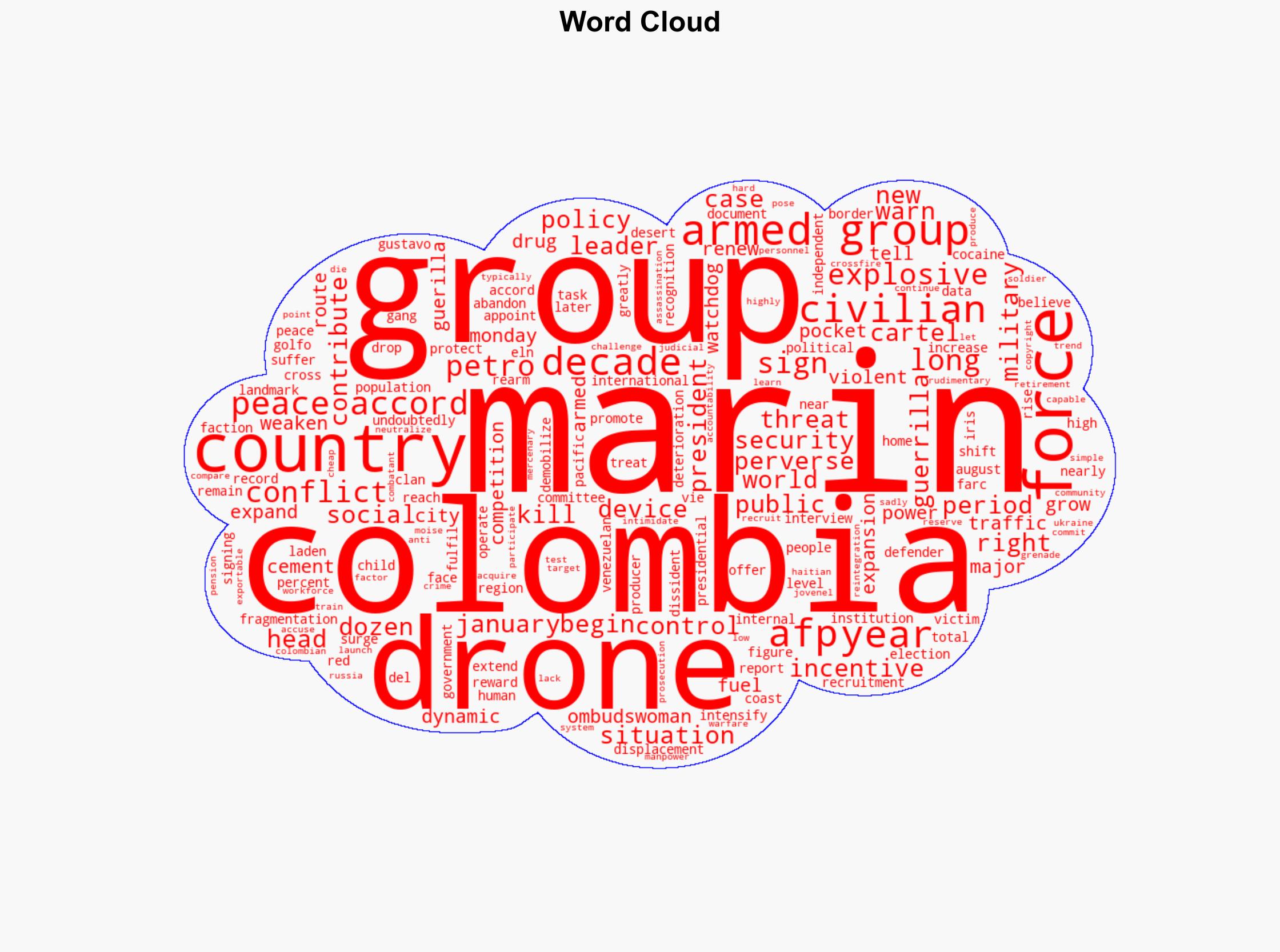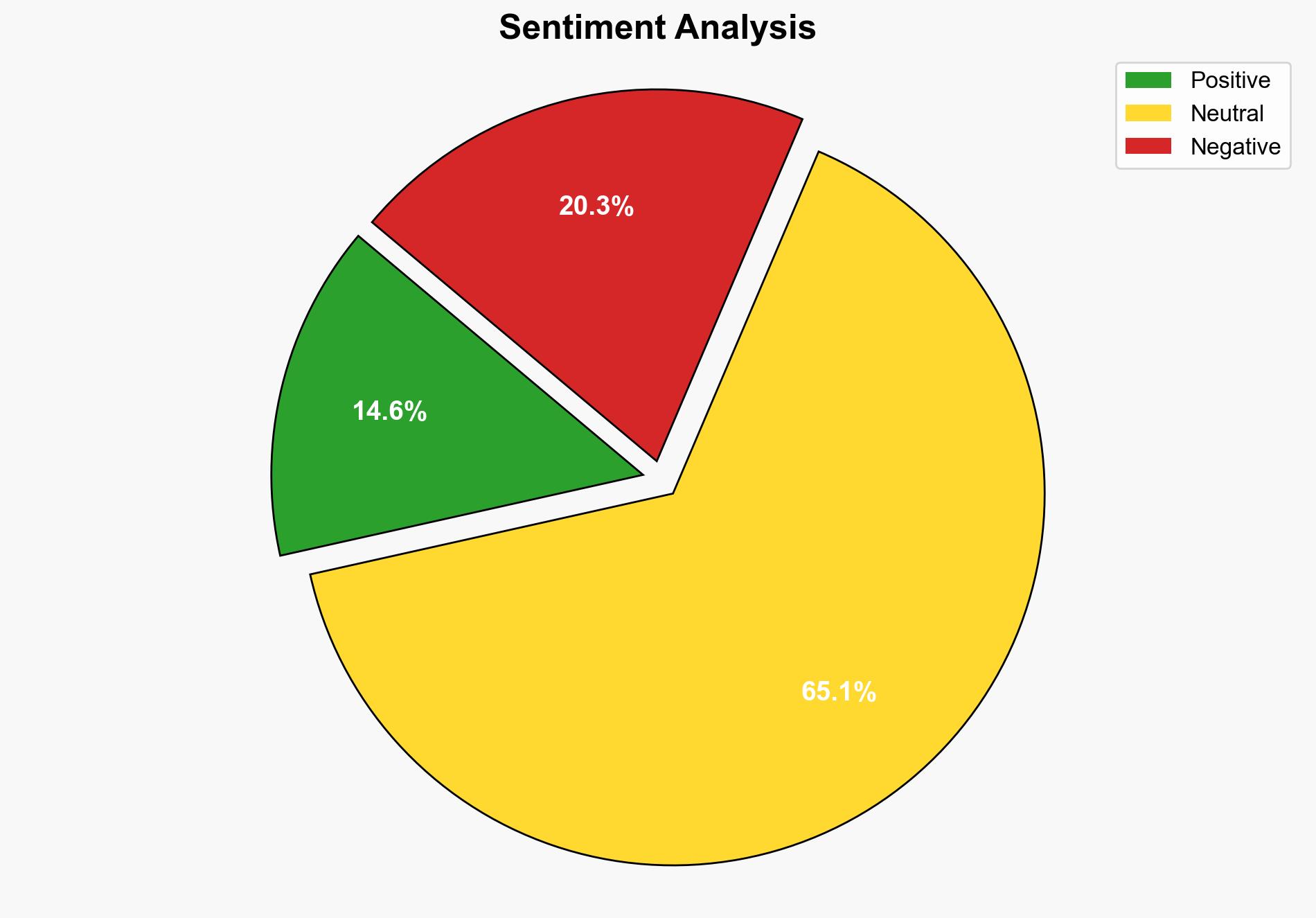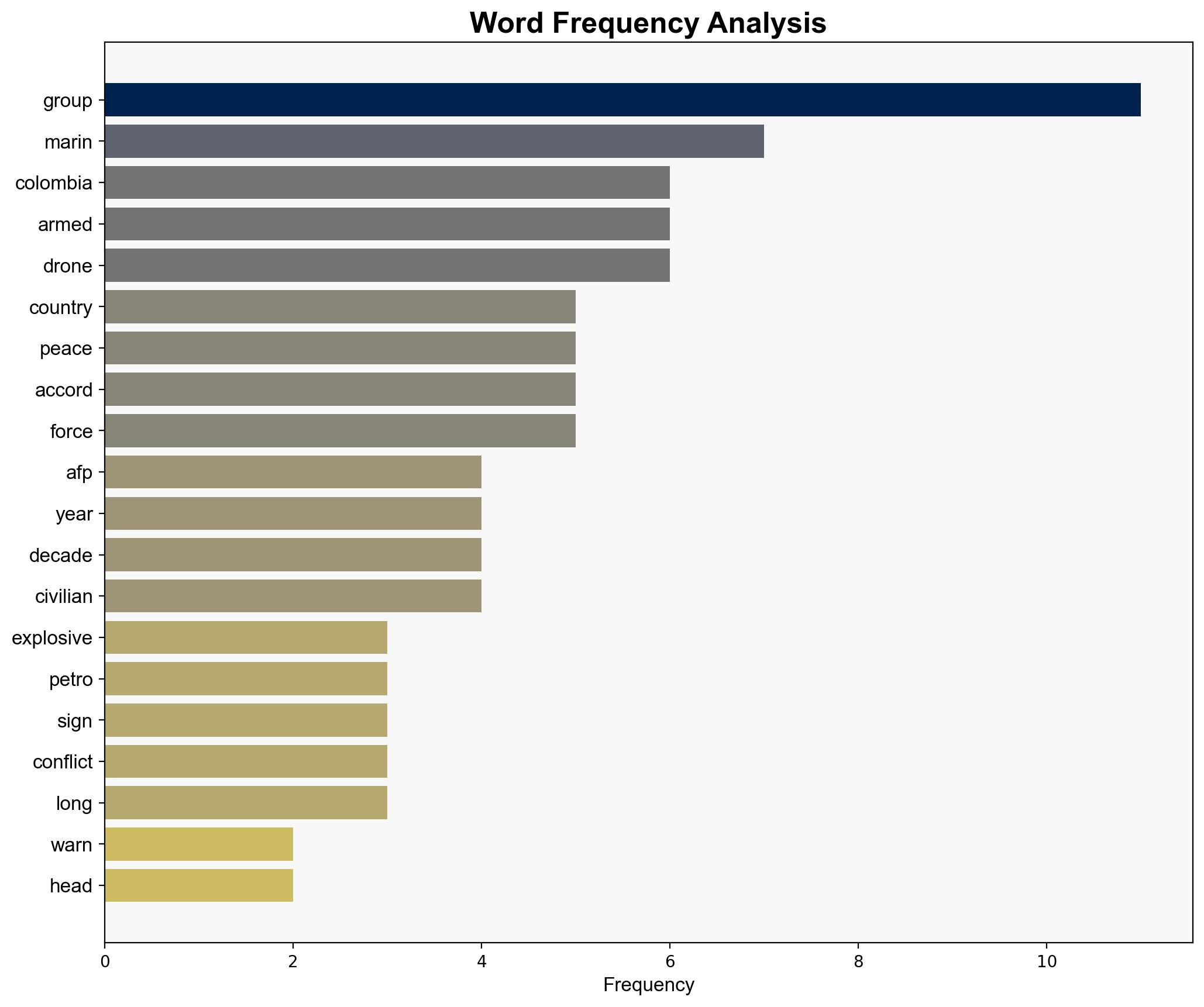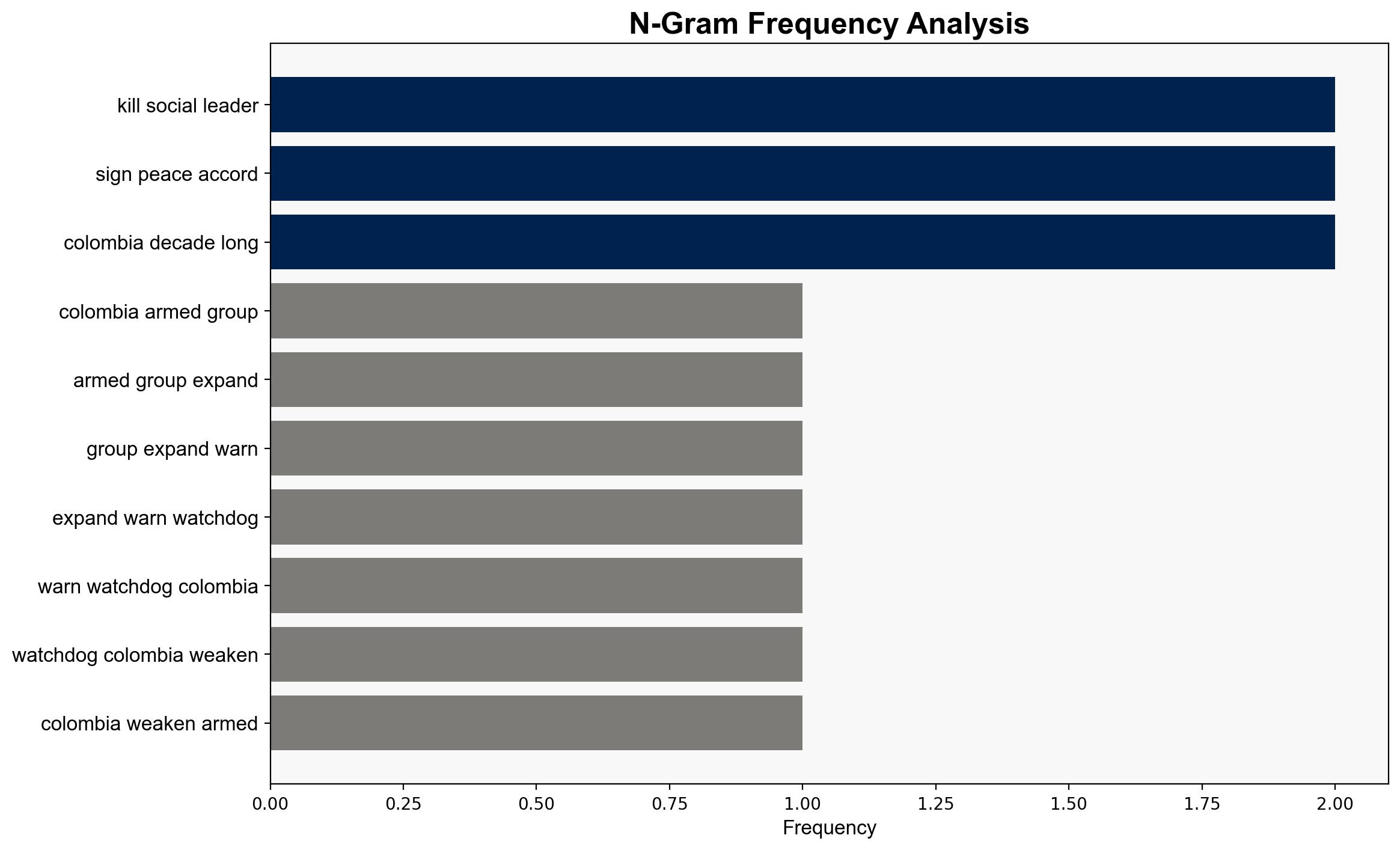Colombia’s Armed Groups ‘Expanding’ Warns Watchdog – International Business Times
Published on: 2025-10-07
Intelligence Report: Colombia’s Armed Groups ‘Expanding’ Warns Watchdog – International Business Times
1. BLUF (Bottom Line Up Front)
The expansion of armed groups in Colombia poses a significant threat to national security, exacerbated by internal fragmentation and external incentives. The most supported hypothesis suggests that these groups are leveraging political and economic instability to consolidate power. Confidence level: Moderate. Recommended action: Strengthen intelligence-sharing and counter-insurgency operations, while reinforcing political stability measures.
2. Competing Hypotheses
1. **Hypothesis A**: Armed groups are expanding primarily due to internal fragmentation and competition for control over drug trafficking routes, exacerbated by the failure of peace accords.
2. **Hypothesis B**: The expansion is driven by external incentives and geopolitical dynamics, including the influence of international drug cartels and inadequate governmental response to emerging threats like drone warfare.
Applying the Analysis of Competing Hypotheses (ACH) 2.0, Hypothesis A is better supported. The evidence of increased violence, displacement, and the use of drones aligns more closely with internal dynamics and the breakdown of peace processes.
3. Key Assumptions and Red Flags
– **Assumptions**: It is assumed that the peace accords were intended to be comprehensive solutions, and that government policies are sufficient to address armed group activities.
– **Red Flags**: The report highlights potential cognitive bias in underestimating the role of international actors. There is also a lack of detailed data on the effectiveness of current government strategies.
– **Missing Data**: Specific metrics on the impact of government anti-drone measures and the role of foreign entities in supporting armed groups.
4. Implications and Strategic Risks
The expansion of armed groups could lead to increased regional instability, affecting neighboring countries and international drug trafficking networks. The use of drones introduces new security challenges that could escalate into broader conflicts. The economic impact includes potential disruptions to local economies and increased costs for security measures.
5. Recommendations and Outlook
- Enhance intelligence collaboration with regional and international partners to monitor and counteract armed group activities.
- Invest in anti-drone technology and training for security forces to mitigate emerging threats.
- Scenario Projections:
- Best Case: Successful reintegration of dissident groups and stabilization of affected regions through comprehensive peace efforts.
- Worst Case: Escalation of violence leading to regional conflict and increased international drug trafficking.
- Most Likely: Continued sporadic violence with gradual adaptation of security measures to counter new threats.
6. Key Individuals and Entities
– Iris Marin
– President Gustavo Petro
– FARC dissident groups
– ELN (National Liberation Army)
– Clan del Golfo
7. Thematic Tags
national security threats, cybersecurity, counter-terrorism, regional focus





